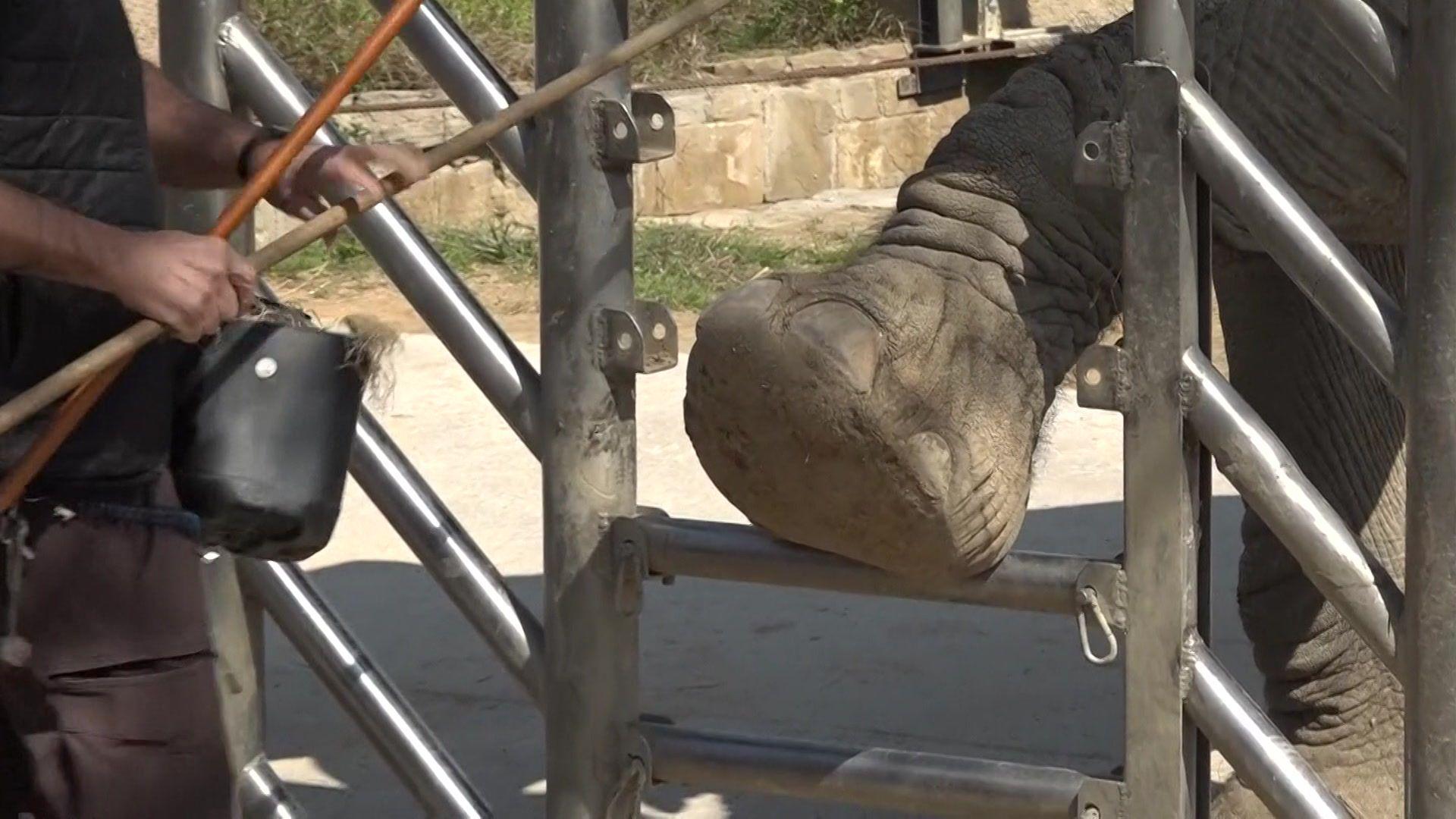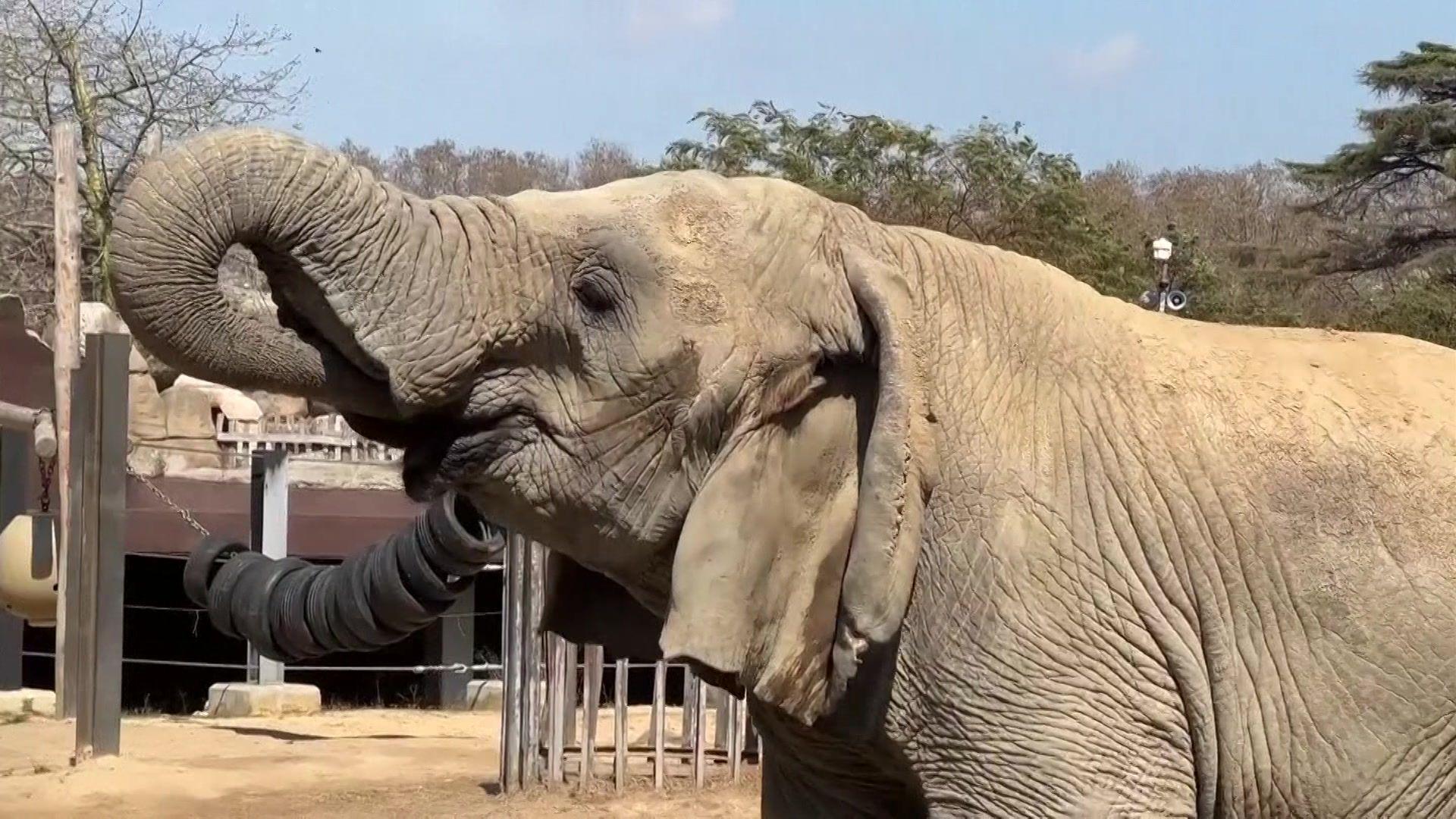How do zoos look after older elephants?

- Published
Susi and Bully are two of the oldest residents in Barcelona Zoo in Spain and possibly some of the oldest animals being looked after in captivity.
Susi is 52, and Bully is 40 years old.
The female African elephants are said to be helping zoos around the world find new ways to look after elderly animals.
The zookeepers say more animals are reaching old age with regular healthy food and vet check-ups.
They say elephants' teeth are a key sign of ageing, as they begin to fall out after 40 years old.
Therefore, the carers have adapted the mammals' diets to soft, sliced vegetables to make sure they can chew and digest their food without causing any further damage to their teeth.

Susi enjoys regular pedicures
They also have regular health checks, treatment for arthritis and nutritional supplements.
They also get daily pedicures where zookeepers look after their ageing feet.
Susi has learnt to put her foot through a hole in the metal barriers where a zookeeper scrubs the soles of her tired feet.
They also get their ears and trunk cleaned by a biologist at the zoo.
Their enclosure includes a shelter to keep warm at night and has been adapted with a soft sandy floor to help any aches and pains in their feet.

Bully was rescued from a circus where she wasn't treated well
Barcelona Zoo is also home to other ageing animals, from a 15-year-old wolf to a leopard and tiger who are both 17, and some older birds, including a flock of senior flamingos and a 17 year-old giraffe.
Martin Zordan, who is a veterinarian and the CEO at the World Association of Zoos and Aquariums, says many animals have a longer lifespan under human care than those in the wild.
"This is pushing us to develop more research and improve practices.
"Because we are having to care for animals that in nature would probably be victims of predators or they would die of hunger or diseases.
"So we are now dealing with all those new health issues that are new for us and for science. Because we are not used to seeing those animals living so long."
